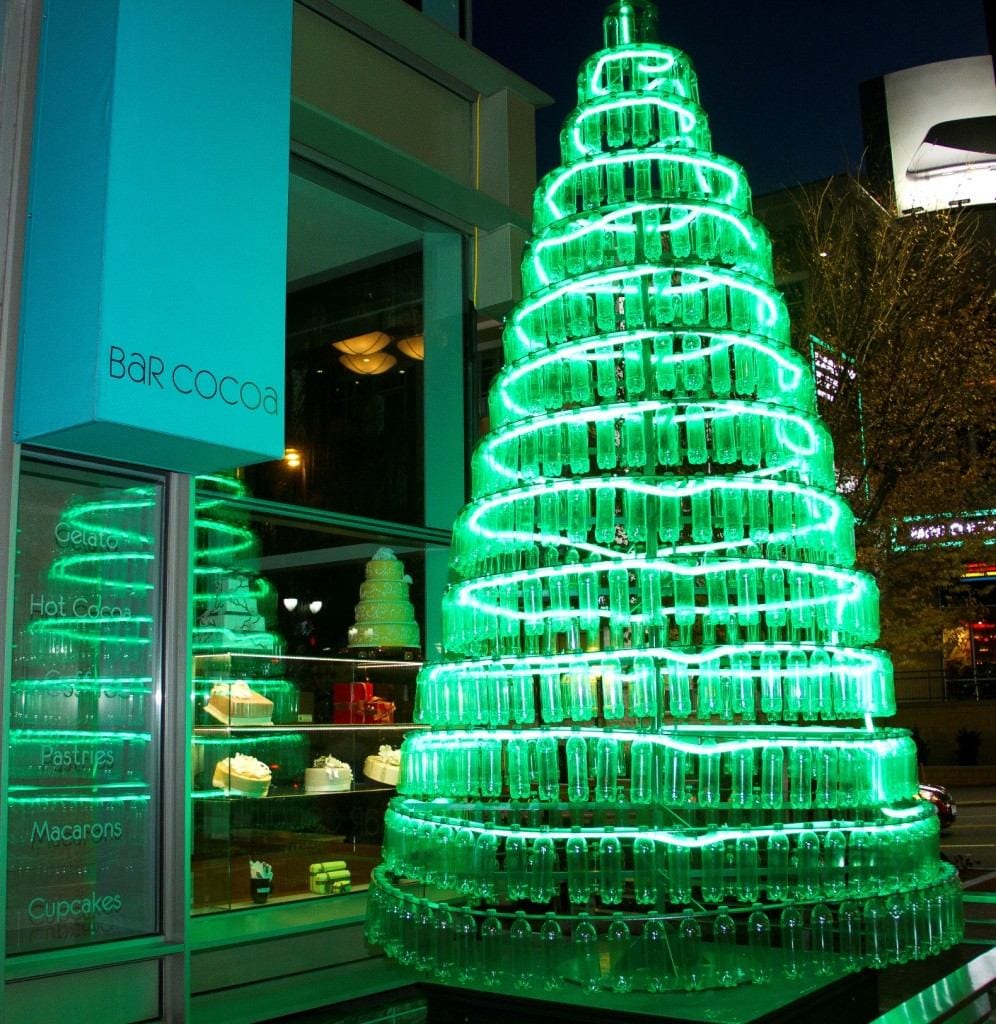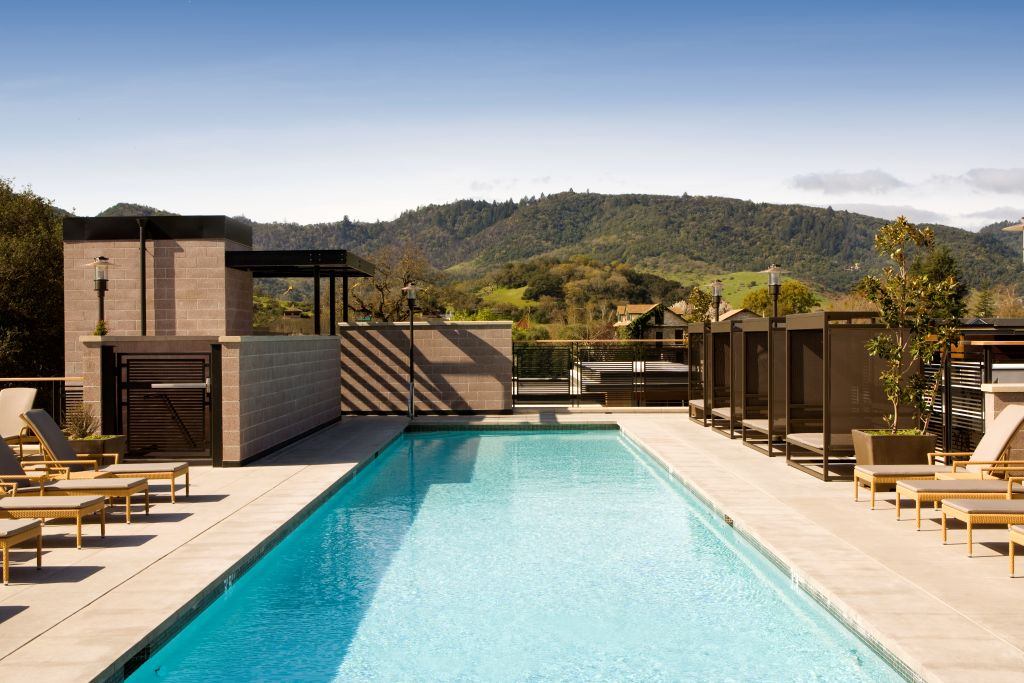Being “green” is more than just complying with local municipal codes; it’s about going above and beyond the call of duty to make a difference. Green hotels are awarded varying degrees of Leadership in Energy and Environmental Design (LEED) certificates, which rate a building’s exterior and interior design and construction, building operation and management, and neighborhood development. Keep reading to discover LEED certified hotels around the world—and a unique destination that is a pioneer in sustainability.
Ritz-Carlton Charlotte, North Carolina

The Ritz-Carlton of Charlotte, recently awarded a Gold LEED certification, has made great strides in reducing the urban heat island effect through its vegetated roof. The hotel utilizes over 18,000 sedum plants, which help slow rain runoff, insulate the rooftop, and cool the air around the vegetation space through evapo-transpiration. Its garden features lavender and mint as well as other fresh herbs and greens and uses two fully-contained beehives to help pollinate the plants and provide natural honey for the hotel. They have also cut water usage by 35 percent with the use of high-efficiency plumbing fixtures, and now save approximately 700,000 gallons of water a year. Love riding bikes? The Ritz-Carlton of Charlotte encourages eco-travel with a bike valet. This holiday season, check out the Christmas tree made of 789 recycled green bottles.
Bardessono Yountville, California
The Bardessono has a Platinum LEED certification, one of the few in the country. They have earned this honor through their innovative use of building resources, such as glass. Each room is equipped with 200 square feet of glass, which gives off plenty of natural light and provides natural ventilation. The roof of this resort is covered in solar panels, which provide 50 percent of all energy required to run the hotel. They didn’t forget water conservation either; they keep their ground water at 70 degrees, which saves energy on excess heating and cooling, and sends all gray and black water off for treatment and recycling for the use of Yountville irrigation needs.
Palazzo Las Vegas, Nevada
You wouldn’t expect a hotel in the extravagant land of Las Vegas to make this list, but the Palazzo has an impressive Silver LEED certification. The Palazzo is actually the largest “green” building in the world. We all know that water is crucial in this drought-prone area, and the Palazzo offsets this by conserving enough water to give each citizen of Nevada 266 glasses of water a year—and enough energy to light one 100 watt light bulb for 12,100 years. They also heat the pools using solar panels and redirect excess solar energy toward water heating.
Skyler Hotel Syracuse, New York
Skyler has earned a Platinum LEED rating, mostly via its 63-ton closed loop Geothermal Heat Pump, which heats and cools by using the earth’s natural temperature. This massive construction consists of 16 vertical wells and 68 water-to-air heat pumps. It also obtains 35 percent of its energy from “Green certified” energy providers, sources 20 percent of construction materials from local sources, and uses Forest Stewardship Council certified wood throughout the hotel.
Aruba
Aruba is a leader in eco-tourism. More than 70 percent of Aruba’s economy activity is derived from tourism, and Aruba has used those funds wisely. At present, wind farms contribute to 20 percent of the country’s energy, a number that will soon be closer to 50 percent. They will also have 100 percent renewable fuel service by the year 2020. The Aruban government is currently trying to reduce traffic congestion and pollution by creating more walkable neighborhoods, and has put a solar-powered tram in place that takes travelers to the capital city of Oranjestad. If you want to get involved, you can help clean up Aruba’s beaches and SCUBA diving sites with the Aruba Care Reef Project.
For more information about sustainable travel, check out:
- Catalina Island: Southern California’s Ecotourism Playground
- Eco-Friendly Gadgets for Earth Day and Beyond
- Tips for Vetting Your Community-Based Tourism Program
By Peter Greenberg for PeterGreenberg.com
















